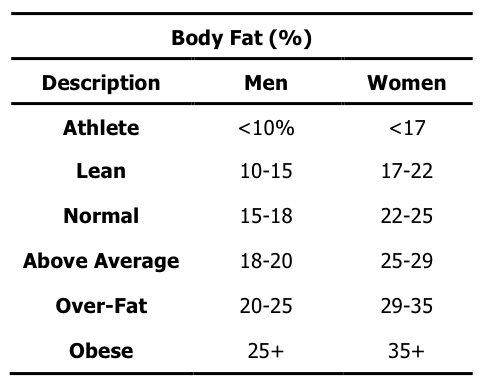The Urban Dictionary has defined “fat-shaming” as “a term made by obese people to avoid the responsibility to actually take proper care of their body…” As an exercise scientist, nutritionist, and advanced trainer with expertise in obesity, and one who’s personally struggled with obesity, I’m not diametrically opposed to this definition.
Unless of course the term ‘fat’ is used maliciously.
Research shows that genetics play a huge role in obesity and some people are less at risk than others.
My husband, for instance, is naturally thin. He’s one of those folks who can eat four slices of pie every day without gaining a pound of fat. I can’t eat one slice. Similarly, one of my besties can maintain a ‘normal’ body weight without exercising at all. I simply can’t.
So, do I dwell on the unfairness of the situation, eat pie, gain weight and then lash out at everyone who mentions the word ‘fat’? Or do I get over it, take accountability for my situation, and find ways to get some real pleasure out of life?
Related Article: Eating Without a Conscience: My Personal Battle with Food Addiction
Personally, from the time I was born, I’ve been at a disadvantage in terms of being overweight.
I weighed 9 pounds 5 ounces, which is considered ‘oversized’ using today’s medical terminology. Throughout the years I continued as an overweight toddler and then as an overweight adolescent always ranking a little higher on the standardized height and weight chart (also known as the body mass index scale).
What I didn’t know then, that I know now is that I’m already predisposed to being obese.
Why?
Well, because overweight children generally have an increased number of enlarged or, in essence, swollen fat cells. In other words, they’re already carrying excess fat. This is one of the primary reasons why the manifestation of obesity in childhood is such a health threat in adulthood.
Now, let me pause to mention this—When I use the terms overweight and obese, I’m really speaking of a state of being ‘over-fat’ or just ‘fat’ in terms of body composition. That’s not fat-shaming—That’s science. As a scientist, being over-fat is something of concern to me, as it is indeed a gateway to obesity and other health problems.
Related Article: The Body Mass Index Versus Body Composition: What You Need to Know
However, instead of focusing the conversation exclusively on the term ‘fat’, I’d much rather focus in on what it actually means to have an ideal body weight or body composition. An ideal body composition is one that encompasses a low percentage of fat weight (body fat percentage) and a high percentage of fat-free weight (muscle, bone, and water) relative to your overall body weight.

As such, it’s your body composition that determines whether or not you’re at an ideal body weight.
When considered this way, a person who’s classified as ‘normal’ on the BMI scale can actually be ‘over-fat’ if they have an elevated body fat percentage. Body composition is a real number that has more meaning than a simple height and weight chart (learn all about body composition measurements here).
Again, I’m already predisposed to obesity and according to the BMI scale I’m also overweight. However, I made a conscious choice at an early age to manage my weight. In light of this fact, I don’t spend much time sweating height and weight charts because I know that my body fat percentage dwells at a ‘normal’ level and that’s all that matters to me.
I’m a healthy woman.
I can outrun the thinnest folks on a track and out lift many men in the weight room.
With that said, I’d like to challenge anyone who is legitimately over-fat and/or obese to take personal responsibility for the condition they have. Realize that being overweight and having a genetic predisposition to obesity isn’t a life or death sentence. Also, while obesity is classified as a ‘chronic condition’ it’s oftentimes manageable with good nutrition and exercise.
Related Article: Understanding the Process of Weight Management
Just as an individual burdened with diabetes must constantly control their blood sugar levels to survive, one who’s burdened with obesity must also make a conscious effort to control their body weight with sensible eating and regular exercise. Incorporating such healthy lifestyle behaviors will more than likely lead to successful and sustained weight loss.
Still, in spite of the health impacts of obesity no one has a right to shame someone for having a predisposition to or manifestation of this chronic condition or ANY other chronic condition. Furthermore, it’s no one’s place, including scientists, medical professionals, or fitness specialists, to use the term ‘fat’ maliciously.
That’s discrimination!
But, at the end of the day, obesity is a chronic condition that’s always lurking amongst those of us who have it or are prone to it. It never really goes away. I accept this fact just as I accept that I’ll always be overweight. I also acknowledge the fact that I still have a chronic condition, which I’m responsible for managing each and every day.
If you think you have become obese to the point that it’s uncontrollable, it is important for you to consult with your physician in order to explore treatment options that are appropriate for your individual situation. Don’t let this chronic condition fester.







